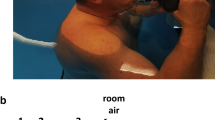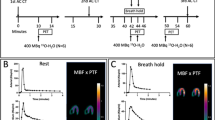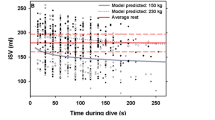Abstract
DISCUSSIONS on the mechanism of decompression sickness have been focused mainly on the saturation and desaturation of the tissues with inert gases. To assess the capacity of the organism to free itself of an abundance of inert gas, experimental methods have usually been applied. Thus it has been possible to define a limited number of nitrogen-elimination rates which are spoken of as representing different types of tissues. Such information is, however, of limited value for the estimation of the relative importance of a certain tissue fraction (in terms of half-saturation time) for the genesis of decompression sickness. In measurements of nitrogen elimination the volumetrically large tissue fractions dominate the picture in a degree which is not necessarily related to their importance as bends tissue.
This is a preview of subscription content, access via your institution
Access options
Subscribe to this journal
Receive 51 print issues and online access
$199.00 per year
only $3.90 per issue
Buy this article
- Purchase on Springer Link
- Instant access to full article PDF
Prices may be subject to local taxes which are calculated during checkout
Similar content being viewed by others
Author information
Authors and Affiliations
Rights and permissions
About this article
Cite this article
GÖRANSSON, A., LUNDGREN, C. & LUNDIN, G. A Theoretical Model for the Computation of Decompression Tables for Divers. Nature 199, 384–385 (1963). https://doi.org/10.1038/199384b0
Issue Date:
DOI: https://doi.org/10.1038/199384b0
This article is cited by
-
Mathematical approaches to decompression
International Journal of Biometeorology (1967)
Comments
By submitting a comment you agree to abide by our Terms and Community Guidelines. If you find something abusive or that does not comply with our terms or guidelines please flag it as inappropriate.



